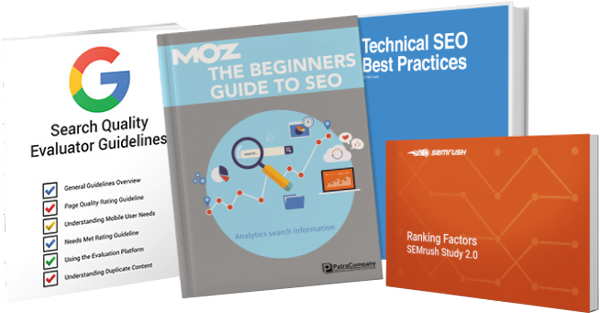As you move through the QA process for launching a website redesign pay close attention how the meta title and description tags are going to appear in search results.
To launch a website that’s optimized for keywords each page needs to contain unique and descriptive metadata for what the page is about. Left blank, your website will launch with default content that has nothing to do with the actual page - destroying your chances of getting any keyword traffic from Google.
Here’s a common example of default metadata from WordPress themes before we run an SEO Setup.
Who would want to click that?? Google doesn’t even know what keyword to rank the page for so chances are nobody will ever see it anyway.
But then after the SEO Setup...
That’s better. Something keyword rich, descriptive, and motivates the searcher to click through.
getting the page to rank
Next to the URL slug, it’s the most valuable place to insert the keyword you want to rank for - assuming the keyword accurately describes the content and said page. Search engines read data from left to write so it’s smart to lead with your primary keyword for the page and is a best practice to include your brand at the end.
<title>Primary Keyword - Eye Grabbing Phrase Supporting It | Brand Name</title>
Adding the primary keyword first might help you rank #1 for a term, but it’s important to include the eye grabbing phrase so that when someone sees your search result they actually want to click it.
Think of your search result as free billboard space on the world’s busiest highway. It doesn’t cost you money to rank in Google’s organic listings so it’s critical you take advantage of it by optimizing the content that is displayed to entice a person to actually want to click through to your website.
getting the click
While the title tag is one of the strongest ranking signals the meta description is actually not a ranking signal at all. Meaning adding keywords here do not help you rank any higher whatsoever.
People often misunderstand this rule and stuff meta descriptions full of keywords which just looks ridiculous to the real human on the other end.
Instead just remember it’s your free billboard space and speak directly to someone who is interested in what that page is about. Convince them to click!
Each page should be individually optimized so that the title and description tags are tailored to describe each page on the website. Furthermore, each page needs to contain unique metadata to prevent missing or duplicate metadata errors. One way to combat failing your SEO audit is to include dynamic metadata features throughout the site to catch any pages that weren’t manually optimized.
Dynamically generated metadata is a great catchall for keeping each page unique and on-topic. Our SEO Setups use custom variables that pull page titles and your company name into the title tag automatically. It’s best to manually update each page, but this is a great backup plan!
